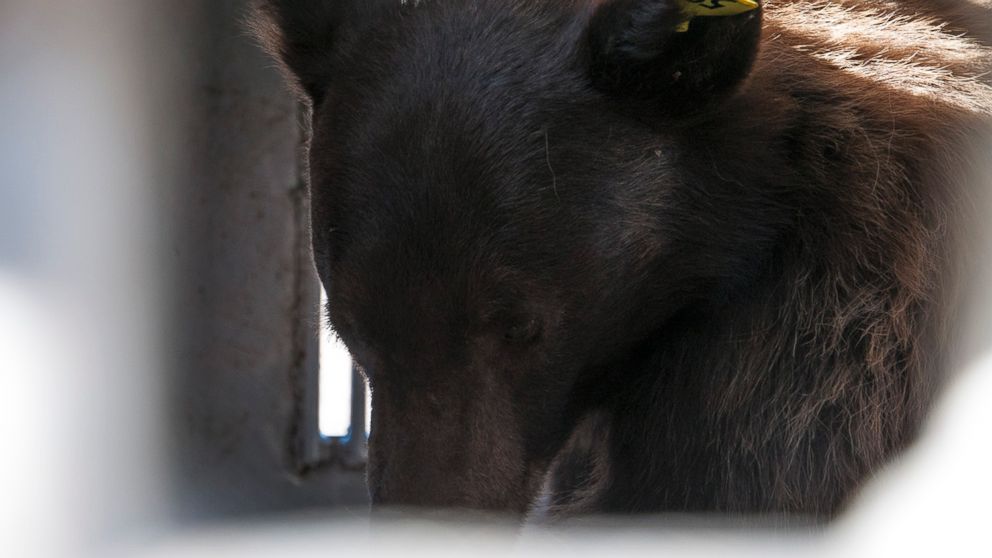Dozens of Bears Captured for Invading Nevada Towns
West Nevada authorities have captured over forty bears since July.

— -- Black bears, left hungry by a prolonged drought, have been invading towns and homes in western Nevada in such numbers that nine have been captured and a tenth was killed in the last two days.
That brought the number of bears that have been captured or killed to 42 since July, according to the Nevada Department of Wildlife. Ten other bears have been killed by cars as they try to cross Nevada roads.
The three-year drought has caused the amount and quality of berries, nuts and seeds that bears eat to dwindle, forcing many bears to seek food in towns and peoples' homes.
"When mother nature doesn't provide enough moisture to grow the food, the bears go in search of food," said Chris Healy, 58, the spokesman for the Nevada Department of Wildlife. He said bears will eat anything they find,including human garbage.
Nearly all of the captured bears have been returned to the wilds, although two were put down because they kept returning to populated areas, Healy said.
The bears' hunger has been heightened at this time of year as they undergo hyperphagia, in period n which their daily caloric intake surges from 3,000 to 25,000 in anticipation of hibernating for winter. Healy said that bears usually hibernate between Thanksgiving and Christmas when snowfall begins, but said the drought may prevent it this year.
"If the drought persists and there's not any snow to speak of, then the bears will stay up and eat," he said.
The department aims to keep the bears alive when captured and later release them into the wild, preferably in places where they can find food though the drought has hindered this effort.
"There's nothing we can do except educate the public" to keep food and trash secure to not attract bears, said Healy.




